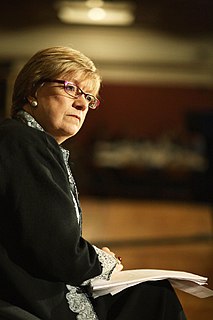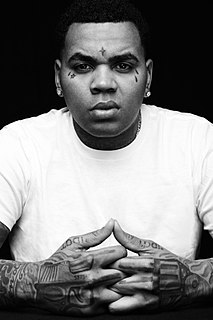A Quote by Stephen Fry
Now, bipolar disorder, it goes on a spectrum. There's very severe conditions of it and there are milder ones. I'm lucky enough that it's reasonably mild in my case.
Quote Topics
Related Quotes
For bipolar in adults, I think there's pretty good agreement about what this looks like. For bipolar in children, there is some considerable debate about where are the boundaries. At the mild end, are these just kids who are active? Is this the class clown at the very severe - is this something other than a mood disorder?
I learned that I suffered from bipolar II disorder, a less serious variant of bipolar I, which was once known as manic depression. The information was naturally frightening; up to 1 in 5 people with bipolar disorder will commit suicide, and rates may even be higher for those suffering from bipolar II.































